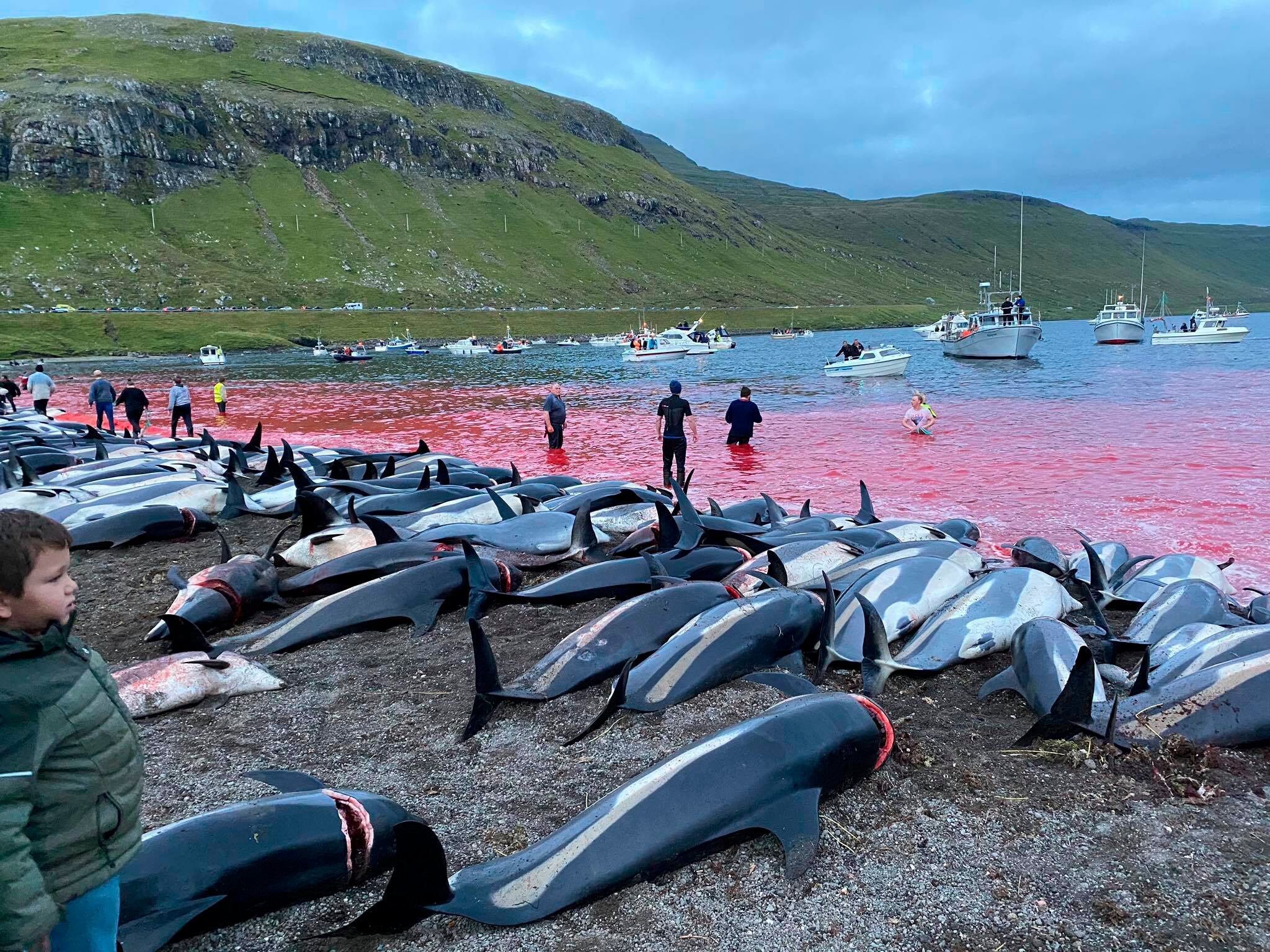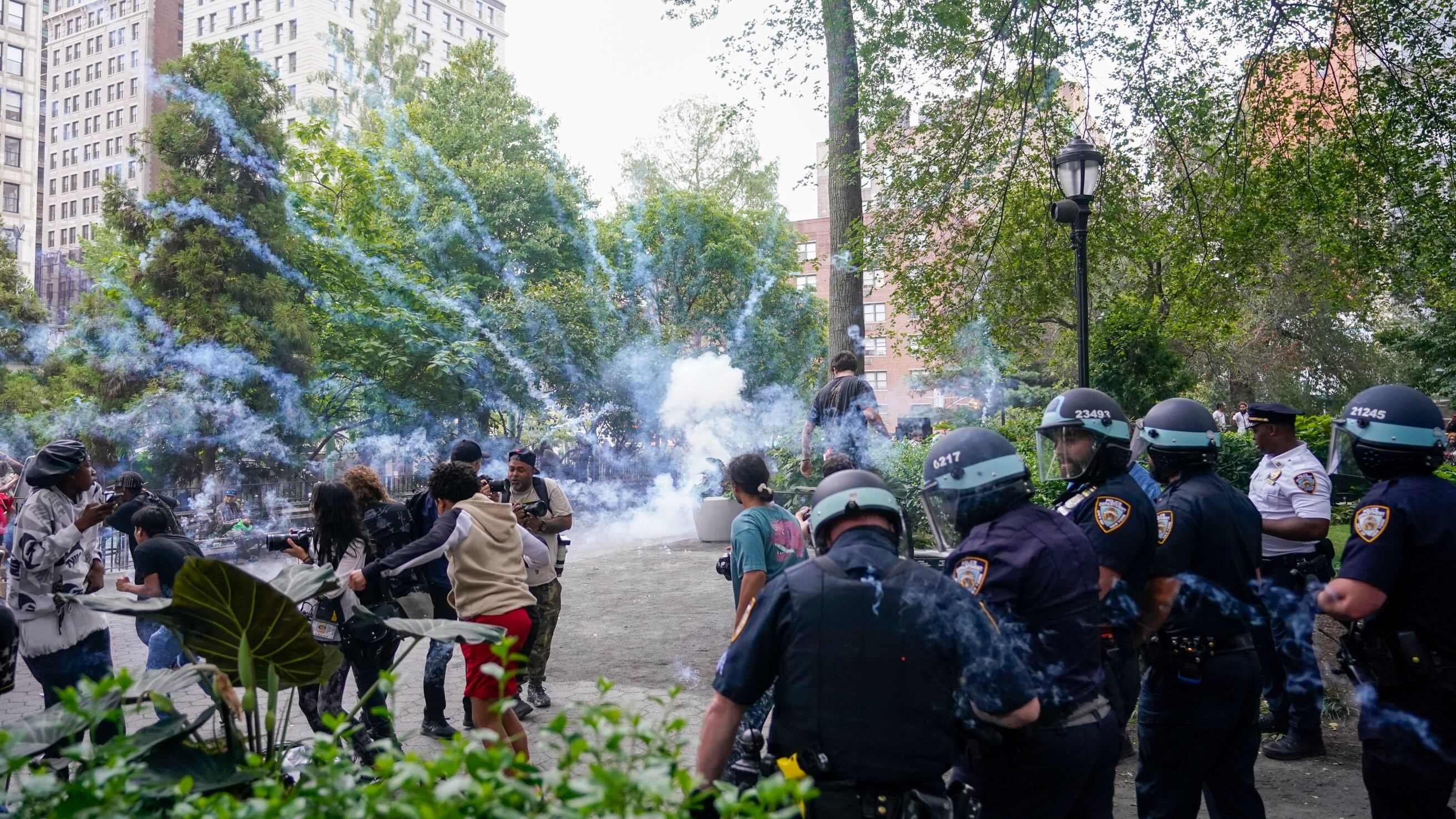The slaughter of 1,428 white-sided dolphins over the weekend, part of a four-century-old traditional drive of sea mammals into shallow water where they are killed for their meat and blubber, has reignited a debate on the small Faeroe Islands.
The hunt in the North Atlantic islands is not commercial and is authorized, but environmental activists claim it is cruel. Even people in the Faeroes who defend the traditional practice worry that this year's hunt will draw unwanted attention because it was far larger than previous ones and seemingly took place without the usual organization.
Heri Petersen, the foreman of a group that drives pilot whales toward shore on the central Faeroese island of Eysturoy, where the killings took place Sunday, said he was not told about the dolphin drive and “strongly dissociated” himself from it.
He told the news outlet in.fo. that there were too many dolphins and too few people on the beach to slaughter them.
Islanders usually kill up to 1,000 sea mammals annually, according to data kept by the Faeroe Islands. Last year, that included only 35 white-sided dolphins.
Olavur Sjurdarberg, chairman of the Faeroese Pilot Whale Hunt Association, feared Sunday's slaughter would revive the discussion about the sea mammal drives and put a negative spin on the ancient tradition of the 18 rocky islands located halfway between Scotland and Iceland. They are semi-independent and part of the Danish realm.
“We need to keep in mind that we are not alone on earth. On the contrary, the world has become much smaller today, with everyone walking around with a camera in their pocket,” Sjurdarberg told local broadcaster KVF. “This is a fabulous treat for those who want us (to look bad) when it comes to pilot whale catching."
Faeroese Fishery Minister Jacob Vestergaard told local radio station Kringvarp Foeroya that everything was done by the book in the dolphin hunt.
For years, the Seattle-based Sea Shepherd Conservation Society has been opposing the sea mammal drives that date from the late 16th century. On Facebook, the organization described the weekend's events as “an illegal hunt.”
The white-side dolphins and pilot whales are not endangered species.
Each year, islanders drive herds of the mammals — chiefly pilot whales — into shallow waters, where they are stabbed to death. A blow-hole hook is used to secure the beached whales and their spine and main artery leading to the brain are severed with knives. The drives are regulated by laws and the meat and blubber are shared on a community basis.











